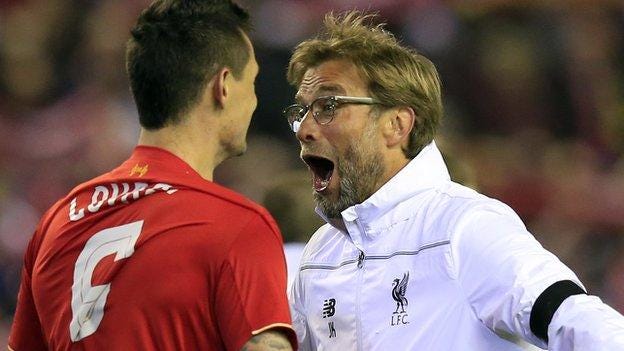#99: What to do when to do lists turn nasty?

Happy Friday!
The problem with a successful summer is that it can cause an overenthusiasm of doings.
A month living and working in Greece was exactly what I needed to get a fresh perspective on my life and work in the UK. Ideas for new ventures spilled easily from my split skull and they all, fatefully, found a spot on my Doings list.
None of this summer shower of ideas were bad, what is bad is that I can only work on three things at a time. Only three tasks on a given day, only three jobs in a given week, only three projects in a given month. And I already had three things that I was working on.
So what happened to this summer's Trojan horse of ideas and ventures? It swelled and, bloated, filled my brain with to do list rot: a constant reminder that I wasn't able to back up my ideas with action.
Last night something snapped. I had a nightmare and woke up at 3 a.m. silently screaming into my duvet.
What's amusing is that my subconscious speaks to my conscious in the only metaphorical language we both understand: football.
Last night, in my dream, I was watching a football match - some sort of two-legged European knock-out fixture. Liverpool (my team) had won the away leg quite handsomely by three goals to nil. It couldn't have gone better: a wonderful lead to take into the second game at Anfield.
Unfortunately, the highlights package of my dream/nightmare started in the 72nd minute, just as the opposing team's striker Andrej Kramaric was bending the ball into the far corner for 4-0 against Liverpool.
My horrifying silent scream was the realisation that, even if Liverpool were to get one goal back, we'd still be knocked out on the away goals rule.
Something had to be done, so I woke myself up and hastily scribbling down a metaphorical interpretation in my notebook.
Three aspects of the metaphor stuck out:
The 'away leg' went fantastically well, just as my 'away summer' went fantastically well.
But now I'm back playing 'at home' and, just like the Liverpool defence, I'm horribly overwhelmed.
Luckily, there is one chink of light in the nightmare: it's only the 72nd minute. There are still 18 minutes of normal time to play and, as unlikely as a comeback would be, it's not impossible. Stranger things have happened - like when Liverpool were 1-3 down with less than 25 minutes to go at Anfield against Dortmund in the 2016 Europa League quarter-final second leg and ended up winning 4-3 to progress to the semi-finals.
Having noted these useful metaphorical parallels between my dream world and my real world, I wrote down a list of actions I could take to dramatically reduce my feeling of overwhelm. It amounted to declaring To Do List Bankruptcy.
First thing this morning, I archived the dozens of notes on ideas and ventures that had been building up, hauntingly unactioned in my daily workbook. Then I copied my myriad lists into my Spark! file for review in 3 months' time (a great idea from writer Steven Johnson) and I cleared out my email inbox.
Emptiness. For the first time since I got back from Greece, a clear desk and a clear mind.
Then I wrote down the three things that I would aim to accomplish today. Finally, I used a Stoic meditation to visualise how this day would pan out, including how I would respond if, and inevitably when my best laid plans ran into trouble.
Then, feeling much better, I had breakfast. And sat down to write this email to you.
Now On: The Viktor Frankl 5-a-day Book Club!
Membership Criteria: Read 5 pages a day of Man's Search for Meaning to complete the whole darn text in only 28 days.
Today is the anniversary of the day in 1944 that Viktor Frankl was transported to Auschwitz concentration camp. Hats off.
Catch up on the past 24 days online.
Day 25
Today's pages (p131-136) conclude the second part of Man's Search for Meaning, 'Logotherapy in a Nutshell'.
Viktor Frankl writes that '[e]very age has its own collective neurosis' and believes that the mass neurosis of the present time is 'a private and personal form of nihilism'.
Frankl warns against the danger of teaching that man is 'nothing but' the result of his biological and social conditions.
As a professor in two fields, neurology and psychiatry, I am fully aware of the extent to which man is subject to biological, psychological and sociological conditions. But in addition to being a professor in two fields I am a survivor of four camps ... and as such I also bear witness to the unexpected extent to which man is capable of defying and braving even the worst conditions conceivable.
The power of such testimony is hard to contend with. Frankl believes that man is 'ultimately self-determining'.
Man does not simply exist but always decides what his existence will be, what he will become in the next moment. ... Man is capable of changing the world for the better if possible, and of changing himself for the better if necessary.
To illustrate his argument, Frankl tells a short anecdote about the 'satanic' Dr. J., 'the mass murderer of Steinhof' who later, imprisoned in Russia, proved himself to be 'the best comrade you can imagine', who 'lived up to the highest conceivable moral standard'. As Frankl writes, 'How can we dare to predict the behaviour of man?'
However, for Frankl, such self-determinative freedom is only part of the story - and, indeed, the lesser part.
Freedom is but the negative aspect of the whole phenomenon whose positive aspect is responsibleness. In fact, freedom is in danger of degenerating into mere arbitrariness unless it is lived in terms of responsibleness.
It is our responsibility, 'within the limits of endowment and environment', to take free decisions and make of our lives what we will.
Our generation is realistic, for we have come to know man as he really is. After all, man is that being who invented the gas chambers of Auschwitz; however, he is also that being who entered those gas chambers upright, with the Lord's Prayer or the Shema Yisrael on his lips.
---
We continue next week...
>> INPUT
[PAPER] Global Warming of 1.5C: Summary for Policymakers (IPCC) The scientists I heard speak on Monday were surprisingly optimistic given the data and predictive models. Perhaps because doomstalk is exhausting and won't get us anywhere. A climate ethicist said that the best thing individuals could do to help was to communicate: share, talk, argue, lobby. Lifestyle changes are all good, but mobilisation is likely to have a more significant impact.
[FONT] Sans Forgetica. Science-based font for remembering what you read. Via Documentally, I believe.
[RADIO] The Digital Human: Average (BBC). "In world where we are constantly told we are all exceptional and unique, Aleks Krotoski explores the unexpected affordances of being average."
[CLIMATE ACTION] Homo Electric and the Trillion Dollar Time Trial: The story of the greatest technological challenge in human history (Future Crunch) I'm sure I've linked to this in the past; it's worth linking to again.
[VIDEO] Alastair Humphreys: Two Sides to Every Story (Youtube) Alastair reads Seneca's Letter 28: 'On travel as a cure for discontent', while bothying in the Highlands.
OUTPUT >>
Lessons from 10 Years of Hashimoto’s Hypothroidism (October) My most popular blog post of the year - thanks to all your sharing and comments!
The Victor Frankl 5-a-Day Book Cult: Day 22 (September)
Not-Gandhi was wrong: you already ARE the change (September)
...COMING UP...
Figuring out how to be less of a carbon hog.
Volunteering at The Bristol Bike Project :D
A reunion with fellow writers in some sort of Fitzrovian tavern.
Have a great weekend, and may you all be just like me - decidedly average!
Much love,
- dc
CREDITS
David Charles wrote this. David is co-writer of BBC Radio sitcom Foiled, does copywriting for The Bike Project and is pretty much always available for work. davidcharles.info // @dcisbusy

The microscopic fabric of butterfly wings, via Kottke.org.


